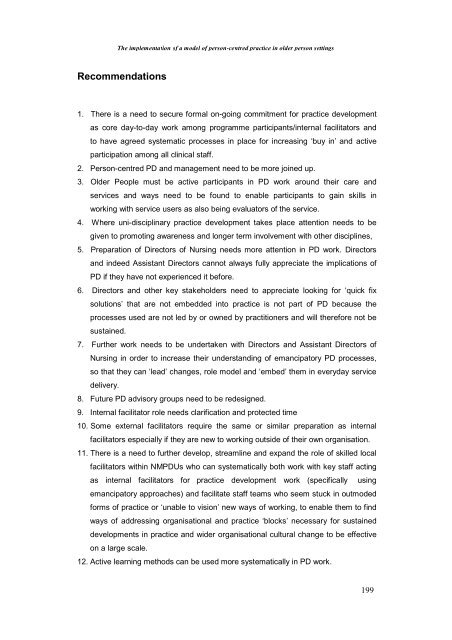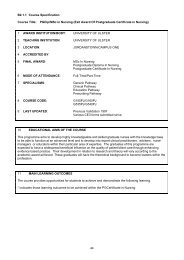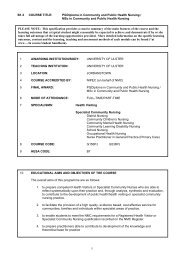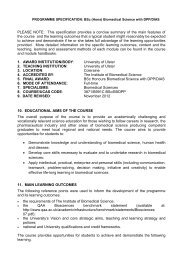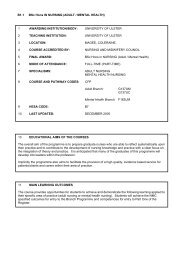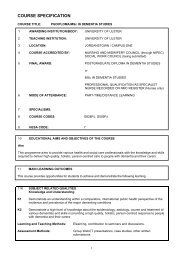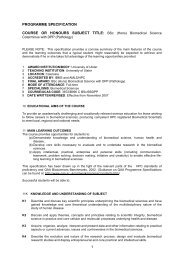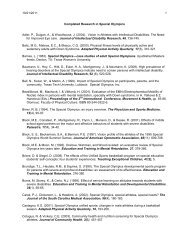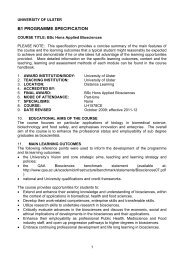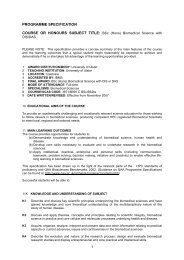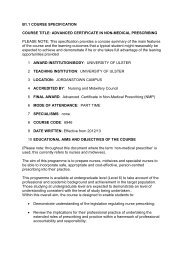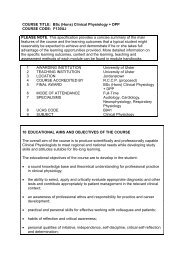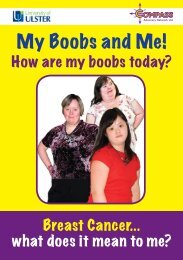The Implementation of a Model of Person-Centred Practice In Older ...
The Implementation of a Model of Person-Centred Practice In Older ...
The Implementation of a Model of Person-Centred Practice In Older ...
Create successful ePaper yourself
Turn your PDF publications into a flip-book with our unique Google optimized e-Paper software.
<strong>The</strong> implementation <strong>of</strong> a model <strong>of</strong> person-centred practice in older person settings<br />
Recommendations<br />
1. <strong>The</strong>re is a need to secure formal on-going commitment for practice development<br />
as core day-to-day work among programme participants/internal facilitators and<br />
to have agreed systematic processes in place for increasing ‘buy in’ and active<br />
participation among all clinical staff.<br />
2. <strong>Person</strong>-centred PD and management need to be more joined up.<br />
3. <strong>Older</strong> People must be active participants in PD work around their care and<br />
services and ways need to be found to enable participants to gain skills in<br />
working with service users as also being evaluators <strong>of</strong> the service.<br />
4. Where uni-disciplinary practice development takes place attention needs to be<br />
given to promoting awareness and longer term involvement with other disciplines,<br />
5. Preparation <strong>of</strong> Directors <strong>of</strong> Nursing needs more attention in PD work. Directors<br />
and indeed Assistant Directors cannot always fully appreciate the implications <strong>of</strong><br />
PD if they have not experienced it before.<br />
6. Directors and other key stakeholders need to appreciate looking for ‘quick fix<br />
solutions’ that are not embedded into practice is not part <strong>of</strong> PD because the<br />
processes used are not led by or owned by practitioners and will therefore not be<br />
sustained.<br />
7. Further work needs to be undertaken with Directors and Assistant Directors <strong>of</strong><br />
Nursing in order to increase their understanding <strong>of</strong> emancipatory PD processes,<br />
so that they can ‘lead’ changes, role model and ‘embed’ them in everyday service<br />
delivery.<br />
8. Future PD advisory groups need to be redesigned.<br />
9. <strong>In</strong>ternal facilitator role needs clarification and protected time<br />
10. Some external facilitators require the same or similar preparation as internal<br />
facilitators especially if they are new to working outside <strong>of</strong> their own organisation.<br />
11. <strong>The</strong>re is a need to further develop, streamline and expand the role <strong>of</strong> skilled local<br />
facilitators within NMPDUs who can systematically both work with key staff acting<br />
as internal facilitators for practice development work (specifically using<br />
emancipatory approaches) and facilitate staff teams who seem stuck in outmoded<br />
forms <strong>of</strong> practice or ‘unable to vision’ new ways <strong>of</strong> working, to enable them to find<br />
ways <strong>of</strong> addressing organisational and practice ‘blocks’ necessary for sustained<br />
developments in practice and wider organisational cultural change to be effective<br />
on a large scale.<br />
12. Active learning methods can be used more systematically in PD work.<br />
199


